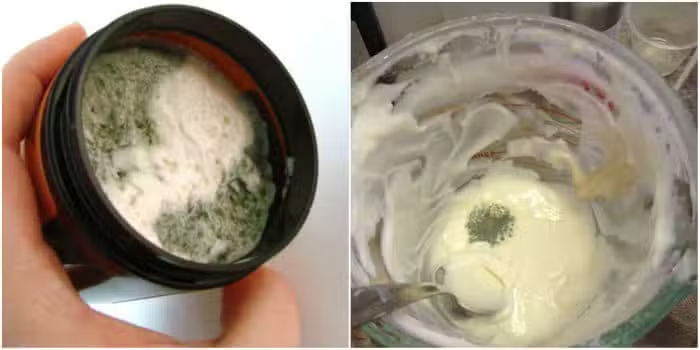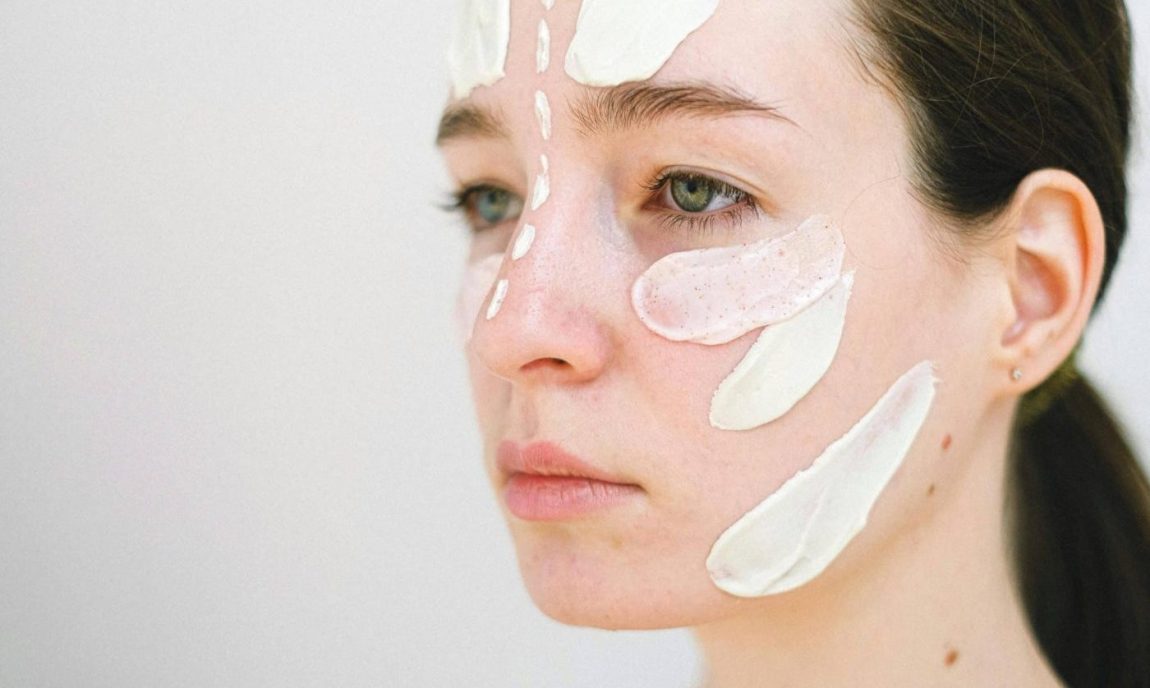Skincare Myths Debunked: Truth Behind Beauty Claims
Skincare Myths: Setting the Record Straight on the Most Common Misconceptions
The skincare industry is rife with myths and misconceptions that can lead to confusion and misguided practices. Today, we're here to provide skincare myths debunked to shed light on the truths behind common beauty claims. Understanding the facts will help you make informed decisions about your skincare routine and choose products that truly benefit your skin.
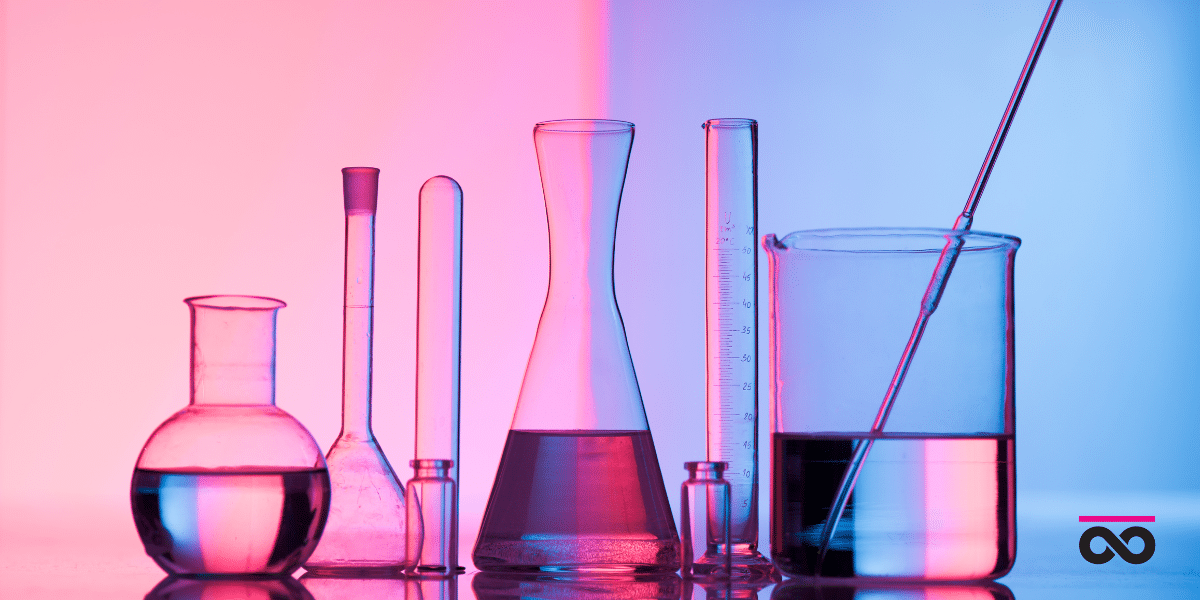
Myth 1: Natural Ingredients Are Always Better. Anything Synthetic is Evil!
Truth: While natural ingredients can certainly be beneficial for the skin, not all are suitable for every skin type, and some can even cause irritation or allergic reactions. Poison ivy is natural, but you wouldn’t want it in your skincare products! Conversely, many synthetic ingredients are thoroughly tested and can be safe and effective – and some are even necessary for the consistency and longer shelf life of skincare formulations.
For some natural ingredients, sustainability and eco-consciousness become the issue. This is where biotechnology comes into play, allowing the union of “natural” and “synthetic” to create “nature-identical.” Nature-identical ingredients are chemically identical to natural ingredients – identical in their molecular structure, physical and chemical properties, as well as their benefits – but they are synthetically created in a lab. Without these ingredients, skincare would require a mortgage!!
So before writing off anything that isn’t straight from nature, remember there are many valid reasons why products incorporate certain ingredients. It’s more important to consider how your skin reacts to specific ingredients rather than simply categorizing them as “good” or “bad” based on their origin.
Let's continue our skincare myths debunked journey with a closer look at preservatives...
Myth 2: Preservatives in Skincare are Dangerous
Truth: Skincare without a preservation system is dangerous. Preservatives have gained somewhat of a dubious reputation, but understand that they serve a fundamental purpose – they stop bacteria, mold, and yeast from growing in your skincare. These microorganisms can cause severe infections, or worse. Have you ever stopped to think that your luxurious cream that comes in a jar is a cesspool of germs? The bacteria on your fingers that you dip in and out of that jar increases the chances of microbial growth. Products that contain water (or may be introduced to water) require a preservative to remain stable and safe to use on the skin and to protect the product from bacteria.
There are both synthetic preservatives and natural preservatives - many synthetic preservatives are highly irritating to skin and considered toxic. Some have been linked to serious long term health issues, too. So, while there are valid concerns around the safety of some preservatives, know that there is an abundance of safer alternatives (including natural and nature-identical preservatives) that can effectively and safely protect your products and your skin!
At Taboodoir, our products feature preservation systems that are well-researched, broad-spectrum (effective against bacteria, mold, and yeast), safe to use on the skin, and approved for natural skincare formulations. We use natural or nature-identical preservatives, free of parabens and other ingredients that raise health concerns, ensuring you can feel confident about the safety and efficacy of our products. For example, our Citrus Radiance Brightening Polish, Almond Affair Body Polish / Body Crème, and Coconut Caress Firming Body Cream feature broad-spectrum preservation systems that are multi-functional, naturally derived and COSMOS-approved for natural skincare.
Another myth about skincare preservatives is that antioxidants such as vitamin E, grapefruit seed extract, and rosemary extract act as natural preservatives. This is not true. Antioxidants can help stabilize oils and butter-based formulations (preventing them from oxidizing), but they don’t provide protection against bacteria, yeast, or mold growing in a product.
Bottom line: If you don’t want nasty bacteria, fungi, mold, and other microbes in your skincare, you may want to reconsider your stance on carefully selected preservatives. Read more on preservatives in our previous blog: The Truth About Preservatives: Why Quality Skincare Needs Protection.

Myth 3: You Only Need Sunscreen on Sunny Days
Truth: Sunscreen is essential every day of every season, rain or shine! Ultraviolet (UV) rays from the sun can penetrate clouds and cause skin damage even on overcast or rainy days. And, although it may feel counterintuitive and a bit extreme, you should wear sunscreen even if you’re indoors! You cannot escape the exposure to the sun’s rays through your windows (and windshields), and even the small amount of ultraviolet light produced by fluorescent lights.
For those with certain skin conditions like rosacea, eczema and acne, sun exposure can exacerbate these annoying conditions. By wearing broad-spectrum sunscreen daily, you can help prevent flare-ups and manage these conditions.
Regardless of the weather, sunscreen should be a part of your daily routine to protect your skin from harmful UV rays, prevent premature aging, and reduce the risk of skin cancer.
Myth 4: Oily Skin Doesn’t Need Moisturizer
Truth: All skin types, including oily skin, need hydration. Skipping moisturizer can actually lead to increased oil production as your skin tries to compensate for the lack of moisture. The key is to choose a lightweight, non-comedogenic moisturizer that hydrates without clogging pores.
Moisturizers don’t add water to your skin, but rather help hold the water in the outer layer of your skin to keep it hydrated. They do so with ingredients called humectants, which draw the water into your skin, and emollients, which form a protective film and trap the water in the skin. (Stay tuned for an upcoming article where we’ll specifically discuss humectants and emollients!)
For those with oily skin, consider yourself lucky…oil helps preserve the skin, and people with oily skin tend to have thicker skin and fewer wrinkles!! The key is to strike a balance between having too much oil and maintaining your skin’s natural moisture.
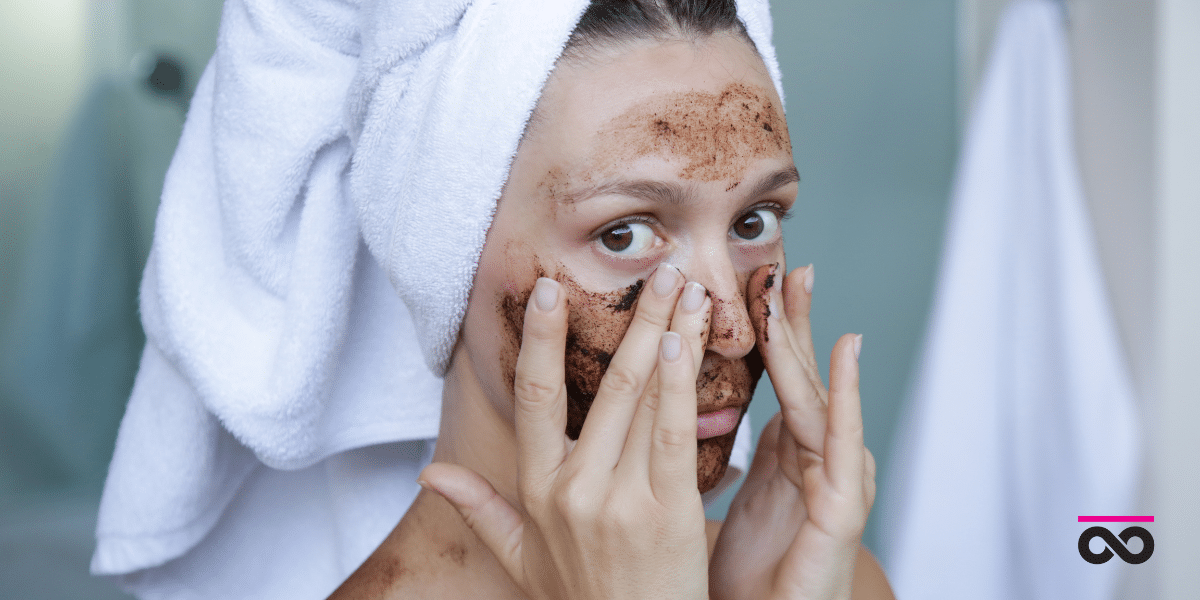
Myths 5, 6, and 7: You Should Wash Your Face Several Times a Day; Hot Water Is Good for Your Skin; and You Should Exfoliate Every Day.
Truth: No; No; and No!!! Over-washing your face can strip away natural oils, leading to dryness and irritation. Typically, washing your face twice a day—once in the morning and once before bed—is sufficient. Always use a gentle cleanser that suits your skin type.
Hot water can strip your skin of its natural oils, leading to dryness and irritation. It can also exacerbate many common skin conditions such as rosacea, psoriasis, and eczema. It’s better to use lukewarm water when washing your face and body – it’s warm enough to kill bacteria, remove excess oil and skin debris, and help open your pores to allow for a deeper skincare product penetration. Using lukewarm water also helps preserve your skin’s natural moisture barrier, keeping it hydrated and healthy.
Over-exfoliating or scrubbing your skin harshly can damage the skin barrier, leading to irritation, redness, sensitivity, and even breakouts. Gentle exfoliation is key. Depending on your skin type, it’s best to exfoliate 1-3 times a week using a mild exfoliant to remove dead skin cells without causing harm.
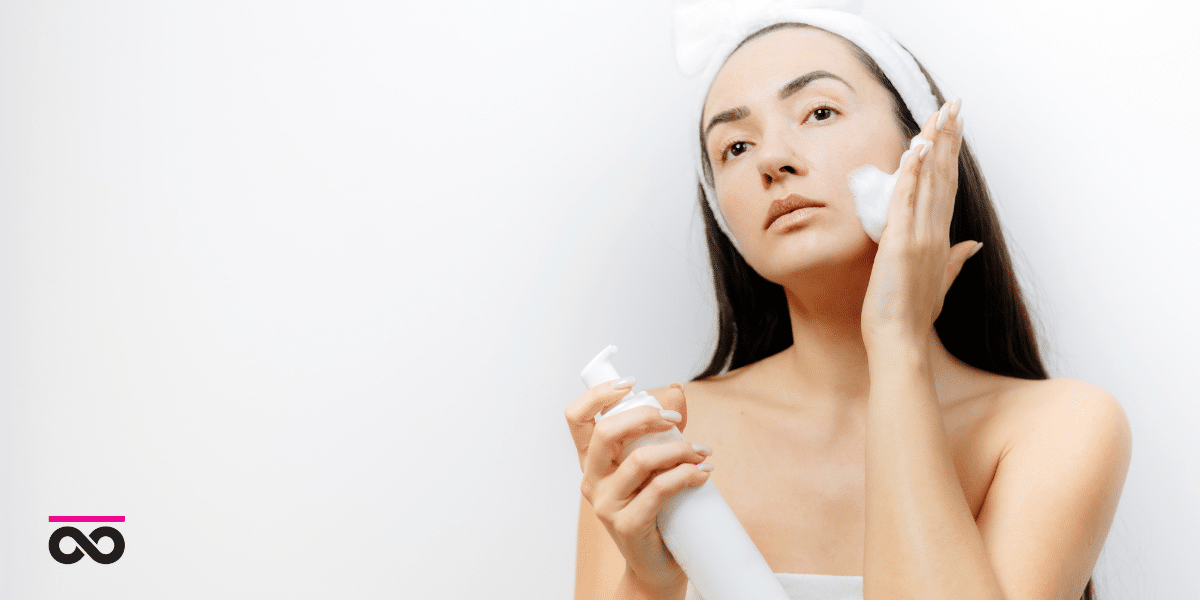
Myth 8: You Can Shrink Your Pores
Truth: The size of your pores is largely determined by genetics, and while you can’t actually shrink them, you can minimize their appearance. Keeping your pores clean and using products that help reduce oil and improve skin texture (e.g., salicylic acid, retinoids, clay masks), can help make them less noticeable…but they won’t change their actual size.
Myth 9: All Alcohol in Skincare is Bad
Truth: Not all alcohols are created equal. While simple or short-chain alcohols, like denatured alcohol, can be drying and irritating, causing the skin to become dehydrated and more prone to irritation, not all alcohols are bad for your skin. On the contrary, certain types of alcohol, known as fatty alcohols, can be highly beneficial.
Fatty alcohols, like cetyl alcohol and stearyl alcohol, act as emollients and can be beneficial. They help to moisturize and soften the skin by forming a protective barrier that prevents moisture loss. These alcohols are derived from natural fats and oils, giving them a completely different structure and function compared to their drying counterparts. Far from causing harm, fatty alcohols contribute to the smooth, creamy texture of many lotions and creams, enhancing the product's ability to hydrate and nourish the skin.
The myth that all alcohol in skincare is bad is a misconception that can lead to avoiding beneficial ingredients. Understanding the difference between simple and fatty alcohols can help you make informed choices that benefit your skin. Always read ingredient labels and choose products that suit your skin type and concerns. With the right knowledge, you can enjoy the benefits of well-formulated skincare products without fear of unnecessary irritation or dryness.
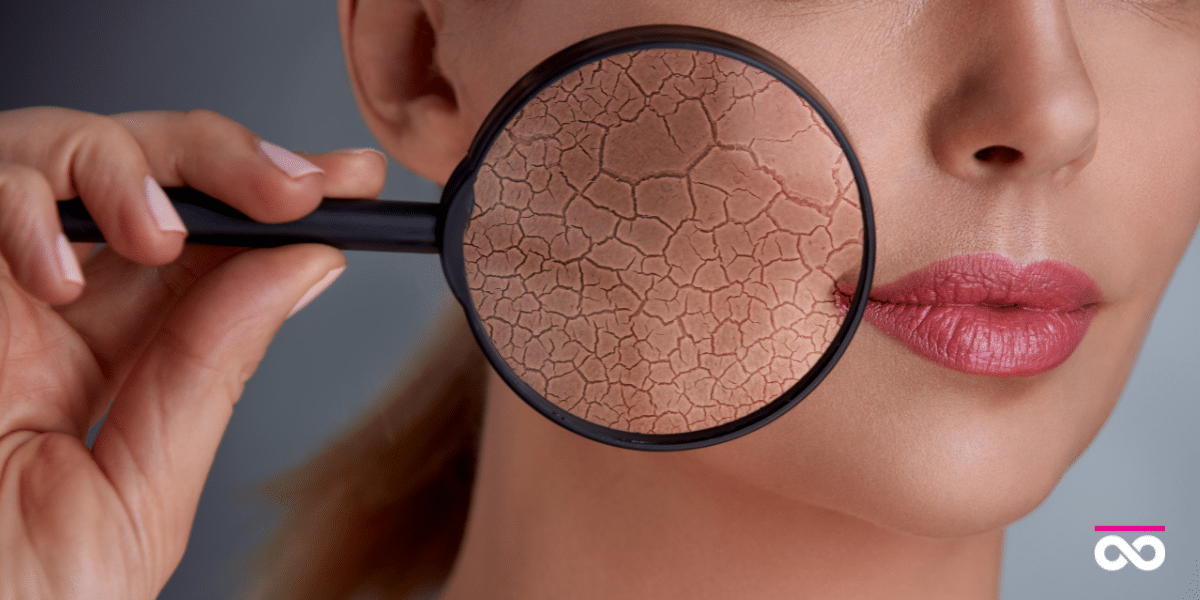
As we continue with skincare myths debunked, let's address misconceptions about when to start skincare...
Myth 10: You Don’t Need to Worry About Skincare Until You’re Older
Truth: It's a common misconception that you don’t need to worry about aging until you’re older. However, preventative skincare is crucial for maintaining youthful skin. Starting in your 20s or 30s, incorporating anti-aging products like sunscreen, antioxidants, and retinoids into your daily routine can significantly help prevent premature aging. These products protect your skin from environmental damage, boost collagen production, and keep your skin healthy and radiant over time. By taking proactive steps early on, you can maintain a youthful complexion and reduce the signs of aging as you grow older.
Conversely, starting an aggressive skincare routine too early can have the opposite effect (read more on this in Teens, Tween, and Toxic Skincare Routines: Exposing the Hidden Dangers & Long-Term Risks of the Youth Obsession).
Myth 11: Expensive Products Are More Effective and Better Quality
Truth: It's easy to assume that a higher price tag means better results when it comes to skincare products. However, this is not always the case. Factors such as branding, packaging, or marketing can drive up the price, rather than the quality or efficacy of the ingredients. While some high-end products contain premium ingredients, many affordable products contain the same active ingredients.
The efficacy of a skincare product largely depends on its formulation and how well it suits your specific skin type and concerns. Ingredients play a crucial role in determining the effectiveness of a product, not the brand or price. For example, a drugstore moisturizer with hyaluronic acid can be as hydrating as a luxury brand's version, provided the formulations are similar.
When choosing skincare products, don't be swayed solely by the price tag. Focus on the ingredient list, the product's formulation, and how well it suits your skin’s needs. Many affordable skincare products are just as effective as their high-end counterparts, offering great results without breaking the bank. By being a savvy consumer and doing a bit of research, you can find effective skincare solutions that fit your budget and skincare goals.
Myth 12: More Product Means Better Results
Truth: In skincare, there's a common misconception that using more product will yield better and faster results. However, applying excessive amounts of skincare products can be counterproductive and even cause adverse reactions. On average, it takes about 28 days for your skin to naturally renew itself (aka skin turnover cycle), and no amount of additional product can significantly speed up this natural process.
Applying too much product can overwhelm your skin, leading to clogged pores, breakouts, and irritation. The skin can only absorb a certain amount of product at a time, and any excess often sits on the surface, potentially causing harm. In addition, most skincare products are formulated to be effective at specific, recommended quantities – so anything more is only wasting the product. Using a few well-formulated products correctly is more beneficial than slathering on multiple layers.
The belief that more product is better is a myth that can lead to negative skin reactions and wasted resources. Understanding your skin's natural turnover cycle and adhering to recommended usage instructions will help you achieve optimal results. Remember, effective skincare is about consistency, patience, and using the right amount of product tailored to your skin's needs.
Conclusion
Skincare myths can lead to confusion and ineffective, even harmful, practices. By understanding the truths behind these common misconceptions, you can make informed decisions about your skincare and choose products that truly benefit your skin. Remember, what works for one person may not work for another, so it's important to listen to your skin and adjust your routine as needed. Stay informed, stay hydrated, and protect your skin daily for a healthy, radiant complexion.
Have other skincare myths debunked topics you'd like us to cover? Drop us a line, and we’ll tackle them in our next blog post.
Until next time, cheers and be well!
Nanette Gauny
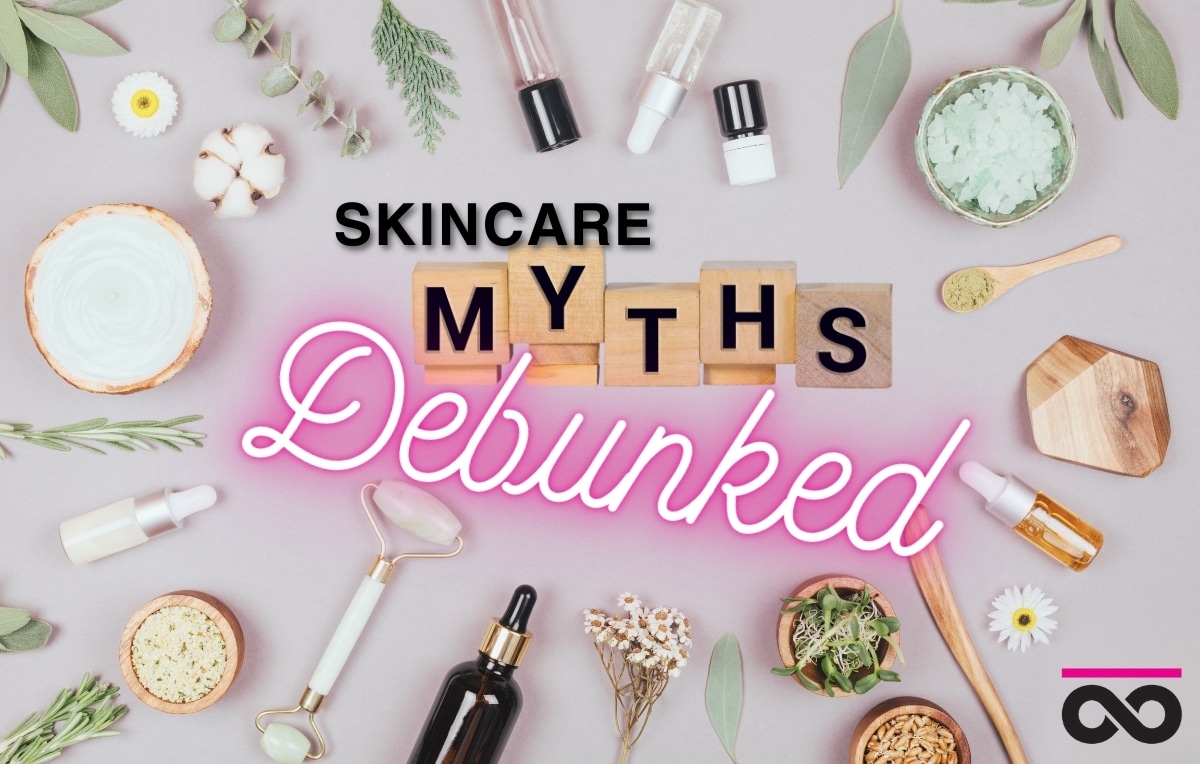
The artisan-created bath & body skincare collections from Taboodoir are uniquely designed to transform your everyday routine into moments of indulgent self-care. Shop online today or contact us for more information.
Disclaimer: The content provided here is for informational purposes only. This blog is not intended to substitute for medical advice, diagnosis, or treatment. Always seek the advice of a qualified healthcare provider for any questions or concerns you may have regarding a medical condition.

